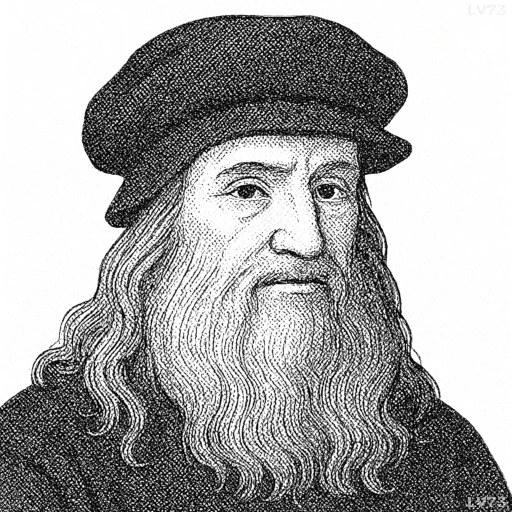“Necessity is the mistress and guide of nature. Necessity is the theme and inventress of nature, her curb and her eternal law.”

- April 15, 1452 – May 2, 1519
- Italian
- A versatile man (painter, sculptor, architect, inventor, scientist, etc.)
table of contents
Quote
“Necessity is the mistress and guide of nature. Necessity is the theme and inventress of nature, her curb and her eternal law.”
Explanation
In this quote, Leonardo da Vinci reflects on the role of necessity as the driving force behind nature’s actions and creations. He argues that necessity is not only the motive for nature’s processes, but also the force that shapes and defines them. Nature’s forms, behaviors, and structures are all, in some sense, shaped by necessity—by the need to adapt, survive, and function. Da Vinci views necessity as both the limit (the “curb”) and the creator (the “inventress”) of nature, guiding its course and ensuring that everything in nature has a practical purpose or function. In other words, necessity drives both the creation and the structure of natural phenomena, and is an eternal law that governs all things.
Historically, this quote reflects Da Vinci’s fascination with the principles of nature and his belief in the efficiency and practicality of natural designs. As both an artist and scientist, Da Vinci understood that the structures and mechanisms in nature were not arbitrary but were shaped by the necessity of function. His studies of human anatomy, the flight of birds, and the workings of machines all reflected his understanding that nature creates solutions to problems or needs. For Da Vinci, the world around him—whether in biology or engineering—was a reflection of nature’s drive for efficiency and purpose.
In modern terms, this quote speaks to the idea that in both nature and human innovation, necessity is often the spark that leads to solutions. Whether in engineering, medicine, or technology, many great inventions arise out of the need to solve a specific problem or meet a practical demand. This aligns with the concept of problem-solving in modern science and innovation, where the necessity of finding a solution drives creativity and progress. Da Vinci’s insight reminds us that the most enduring and successful creations are often those that arise in response to real-world needs—driven by necessity, yet shaped by innovation.
Would you like to share your impressions or related stories about this quote in the comments section?


